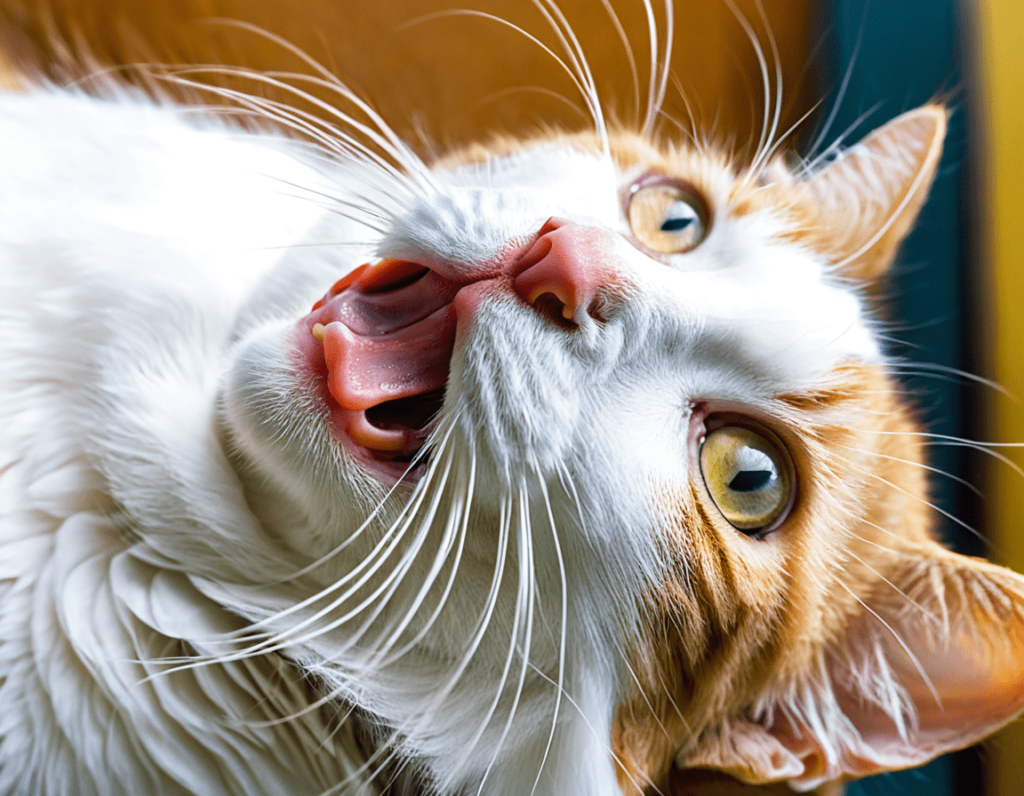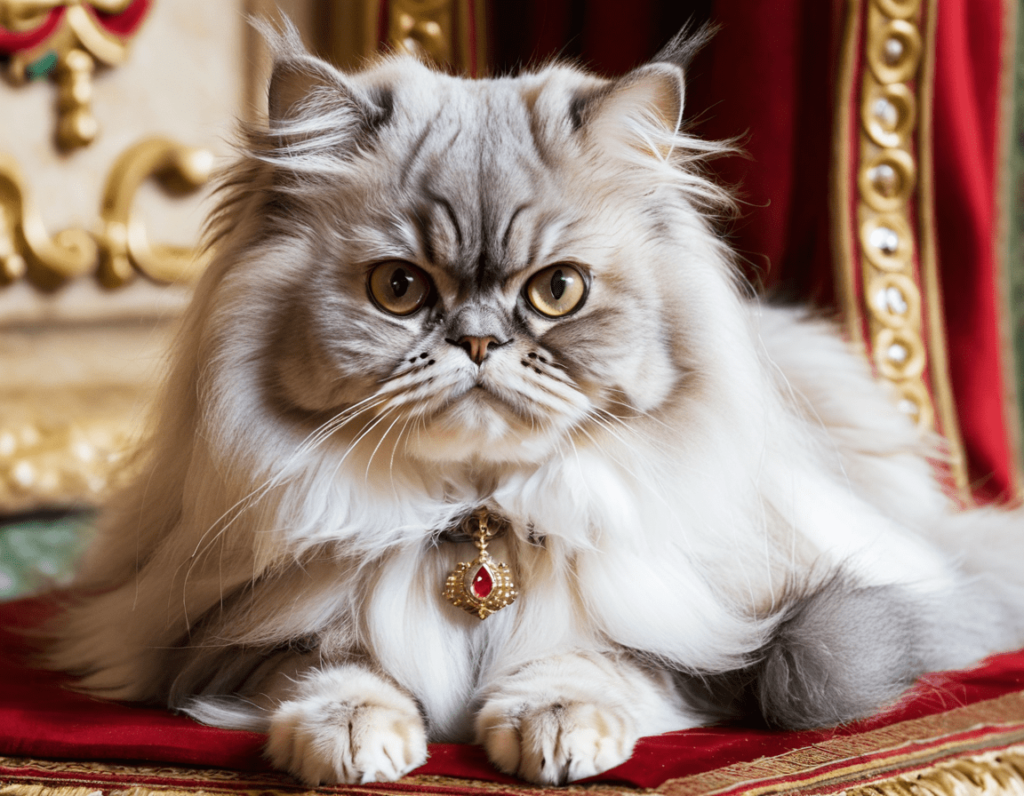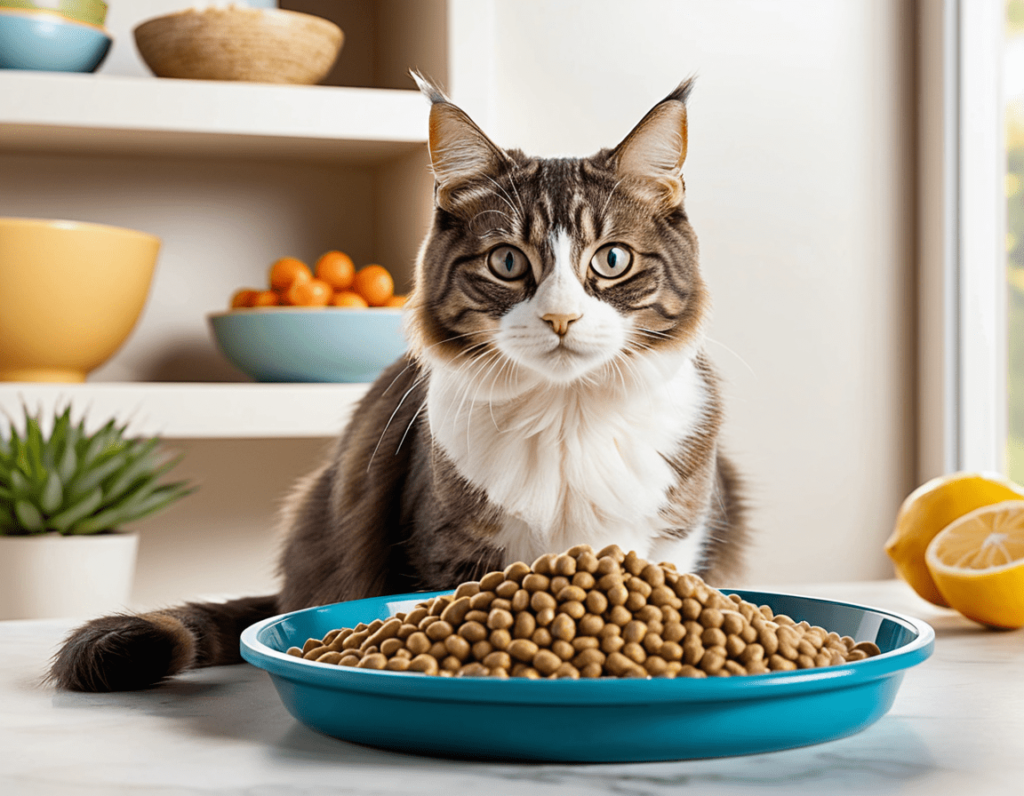
Cat Health: Keeping Your Feline Friend Happy and Healthy
Cats are mysterious creatures. One minute they’re lounging in the sun like royalty, and the next, they’re zooming around the house like a furry tornado. As a cat parent, it’s your job to ensure that your cat stays healthy, happy, and purring. While cats are pretty good at hiding when something’s wrong, there are key things to look out for to make sure they’re in tip-top shape. Let’s dive into some important aspects of cat health that every cat owner should know.
1. Regular Vet Checkups: Because Cats Can't Do It Alone
Just like humans, cats need regular checkups to stay healthy. Annual visits to the vet can help spot any health issues before they become major problems. Routine exams usually include vaccinations, flea and tick prevention, and a general health check. Think of the vet visit like a spa day – but for your cat. Of course, your cat might not see it that way. They might think of the vet as their personal nemesis, but trust us, it’s for the best!
Most searched keywords related to vet care: “Cat vaccinations,” “cat health checkup,” “why regular vet visits are important.”
2. Diet and Nutrition: The Purr-fect Meal Plan
A balanced diet is essential for your cat’s health. Just because your cat’s begging for a bite of your sandwich doesn’t mean they should have it (sorry, no tuna melt for you, Mr. Whiskers). High-quality cat food tailored to your pet’s age, weight, and health needs will keep them in top shape. Cats are obligate carnivores, which means they thrive on meat-based diets. Make sure their food contains the right amount of protein, fat, and nutrients to support their lifestyle.
And don’t forget about hydration! Cats aren’t always great at drinking water, so consider wet food or a water fountain to encourage them to stay hydrated. After all, your cat can only survive on so many bowls of milk (despite what cartoons tell you).
Most searched keywords related to cat diet: “Best cat food,” “cat nutrition,” “wet vs dry cat food,” “cat hydration tips.”
3. Exercise and Mental Stimulation: Keep That Kitty Fit
Cats are natural hunters, and even though your furry friend might prefer to lounge around all day, they still need exercise and mental stimulation to stay healthy. Playtime is essential! Laser pointers, feather wands, or interactive toys like treat-dispensing puzzles can keep your cat active and mentally sharp.
Don’t let your cat become a couch potato – that’s your role. Encourage playtime every day. Plus, it’s a great way to bond with your feline companion (they might even purr their approval, or at least not completely ignore you while you wave that feather in front of their face).
Most searched keywords related to cat exercise: “Best cat toys,” “indoor cat exercise,” “how to keep your cat active.”
4. Grooming: Because Nobody Likes a Dirty Cat
While your cat might act like they’re the king or queen of cleanliness, they still need a little help now and then. Regular grooming helps keep their fur shiny and reduces shedding. It also prevents hairballs, which, let’s face it, no one wants to deal with – including your cat. Brush your cat a few times a week, especially if they have long fur.
And don’t forget their claws! Trim them regularly to avoid accidents or scratching up your furniture (unless you’re cool with your cat having their very own “scratch-and-destroy” zone).
Most searched keywords related to grooming: “How to groom a cat,” “cat hairball prevention,” “cat claw trimming tips.”
5. Dental Health: It’s Not Just for Humans
Just like you, your cat can develop dental issues. In fact, dental problems are one of the most common health issues in cats. Bad breath, drooling, or difficulty eating could be signs of dental disease. Regular teeth brushing is a good habit to start, and there are also dental treats and toys that can help keep your cat’s mouth fresh.
And remember, your cat might not love the idea of having their teeth brushed (they’d rather be doing anything else, like chasing a laser), but dental health is just as important for them as it is for you.
Most searched keywords related to cat dental health: “Cat dental care,” “how to brush a cat’s teeth,” “best dental treats for cats.”
6. Signs of illness: Don’t ignore the signs!
Cats are experts at hiding their pain, so it’s important to keep an eye out for any unusual behavior. If your cat suddenly becomes lethargic, refuses to eat, or starts behaving differently, it could be a sign of illness. Weight loss, excessive grooming, or changes in bathroom habits (like urinating outside the litter box) should also raise a red flag.
The key is to act early. If something seems off, it’s better to take them to the vet sooner rather than later. Trust your instincts – you know your cat better than anyone!
Most searched keywords related to cat health signs: “Signs of illness in cats,” “cat health symptoms,” “how to tell if your cat is sick.”
7. Preventive Care: A Little Extra Effort Goes a Long Way
Preventive care is always better than dealing with a health crisis. Flea, tick, and worm treatments are essential to keeping your cat healthy. Regular flea control can prevent discomfort and even more serious health issues. Don’t forget about spaying or neutering, which can improve your cat’s overall health and behavior.
Most searched keywords related to preventive care: “Flea control for cats,” “preventive cat healthcare,” “spaying or neutering cats.”

Conclusion: Happy, Healthy Cats, Happy, Healthy Homes
Caring for your cat’s health may require a little extra work, but the rewards are well worth it. A healthy cat means more purring, more snuggles, and fewer trips to the vet. So, keep an eye on their diet, exercise, grooming, and general health, and your furry friend will live their best nine lives.
And remember, while cats may not always show their gratitude, they sure know how to steal your heart – and maybe your spot on the couch too. Keep them healthy, and you’ll have a lifetime of cuddles (and slightly ridiculous cat behavior) to look forward to.
Bonus Tips for a Long and Happy Life for Your Cat
Now that we’ve covered the basics, here are a few bonus tips to ensure your feline companion stays healthy for years to come:
1. Create a Stress-Free Environment
Cats, despite their aloof reputations, are sensitive to stress. If you have multiple pets or young children, make sure your cat has a quiet, safe space to retreat when they need some alone time. Stress can affect your cat’s physical and mental health, so providing a calm environment will go a long way in keeping them happy and healthy.
2. Keep Their Litter Box Clean
A clean litter box is essential for your cat’s well-being. Cats are notoriously picky about their bathrooms, and a dirty litter box can lead to accidents or even health issues like urinary tract infections. Scoop it daily, and change the litter regularly. It’s a small effort that can make a big difference in your cat’s happiness.
3. Watch Their Weight
Obesity is a growing concern for cats, especially with indoor kitties. Extra weight can lead to joint issues, diabetes, and other health problems. Keep an eye on your cat’s weight and adjust their food portions accordingly. If you’re unsure, your vet can help you determine the ideal weight for your cat’s breed and age.
4. Keep Their Claws in Check
Cats love to scratch – it’s their way of stretching and marking territory. However, if they’re scratching up your furniture, it might be time to invest in a good scratching post. Regularly trim your cat’s claws to prevent overgrowth and discomfort. If you’re unsure how to do it, ask your vet for a demonstration.
5. Socialization and Bonding
While cats are often independent, they also enjoy companionship. Spend quality time with your cat each day – whether it’s playtime, petting, or simply sitting together. Bonding with your cat helps reduce stress and strengthens the human-animal connection. They might act like they’re too cool for you, but deep down, they love the attention!
Final Thoughts: Your Cat's Health is Your Happiness
As cat owners, we want nothing more than to see our furry friends live long, healthy lives. By providing the right food, regular vet visits, plenty of playtime, and a clean environment, you’re doing your part to ensure your cat stays healthy and happy. Sure, they might knock things off the counter and demand food at 3 a.m., but that’s just part of their charm.
Remember, healthy cats lead to happy homes. And while they may never truly understand how much we do for them, they’ll surely reward you with the best thing they know how to give: those little headbutts, purrs, and the occasional lap nap.
Most searched keywords related to cat health: “How to keep cats healthy,” “cat health tips,” “cat preventive care,” “cat diet advice.”
So, keep loving your cat, keep an eye on their health, and don’t forget to laugh at the quirky, funny moments that make them, well, cats!
FAQs About Cat Health: Your Top Questions Answered
As a cat owner, it’s normal to have a lot of questions about your feline friend’s health. Cats are mysterious creatures, and sometimes it’s tough to know if they’re feeling off or just being their quirky selves. To help you out, we’ve compiled some of the most common questions about cat health. Let’s get into it!
1. How do I know if my cat is sick?
Answer: Cats are excellent at hiding their illnesses, so it’s important to be observant. If your cat shows any of the following signs, it could be a sign of illness:
- Loss of appetite or sudden weight loss
- Lethargy or unusual behavior (hiding more than usual)
- Changes in litter box habits (frequent urination, blood in urine, or not using the litter box at all)
- Vomiting or diarrhea that lasts more than a day
- Excessive grooming or scratching
If you notice any of these signs, it’s a good idea to consult your vet.
2. How often should I take my cat to the vet?
Answer: Regular vet checkups are essential for maintaining your cat’s health. Ideally, your cat should see the vet once a year for a general health checkup and vaccinations. If your cat is older or has chronic health issues, your vet might recommend more frequent visits. Don’t forget about dental checkups too – dental disease is common in cats!
3. Can I give my cat human food?
Answer: It’s best to avoid feeding your cat human food. While a small piece of cooked chicken or a bit of tuna can be okay as an occasional treat, many human foods are toxic to cats. For example, chocolate, onions, garlic, and alcohol can all be harmful. Stick to high-quality cat food that’s designed to meet your cat’s nutritional needs.
4. How can I help my cat lose weight?
Answer: If your cat is overweight, consult your vet for a weight loss plan. Cutting back on treats and switching to a weight management cat food are common strategies. Don’t just reduce their food – it’s important to gradually transition to a healthier diet. You can also increase playtime and encourage your cat to be more active with toys or interactive games.
5. Should I spay or neuter my cat?
Answer: Yes! Spaying or neutering your cat is a responsible decision for both their health and your community. It can help prevent certain health issues like uterine infections or prostate problems. Plus, it reduces the risk of unwanted litters, which is important for controlling the stray pet population.

6. What can I do to keep my cat’s coat shiny and healthy?
Answer: Regular grooming is key to maintaining a healthy coat. Brush your cat regularly (especially if they have long hair) to prevent matting and hairballs. Bathing isn’t usually necessary unless your cat gets into something messy. Also, a balanced diet with plenty of omega-3 fatty acids will help keep their coat shiny and soft.
7. Is it okay to have multiple cats in the same household?
Answer: Absolutely! But it’s important to make sure each cat has their own space. If you have multiple cats, make sure to provide plenty of litter boxes (one per cat, plus one extra) and separate feeding stations. Introducing new cats to each other should be done gradually to avoid stress or territorial disputes.
8. How can I prevent my cat from getting fleas?
Answer: Flea prevention is essential to your cat’s health. Use vet-approved flea preventatives, such as topical treatments or flea collars. Be sure to also treat your home (and any other pets) for fleas to avoid a full-blown infestation. If your cat is scratching or biting excessively, they may have fleas, and it’s best to consult your vet for treatment.
9. What should I do if my cat has a hairball?
Answer: Hairballs are a common occurrence for cats, especially those with long fur. If your cat vomits a hairball occasionally, it’s generally not a cause for concern. However, if hairballs are happening frequently, it could indicate a grooming issue or digestive problem. Regular brushing can help reduce the amount of hair your cat ingests. If hairballs become a persistent problem, talk to your vet.
10. How do I keep my cat's teeth healthy?
Answer: Cats can suffer from dental disease, so it’s important to take care of their teeth. Regular tooth brushing is the most effective way to prevent dental problems. If your cat won’t tolerate brushing, there are dental treats and toys designed to help. Your vet may also recommend professional cleanings if necessary.
11. What is the best diet for my cat?
Answer: The best diet depends on your cat’s age, health, and activity level. In general, high-quality, meat-based cat food (either wet or dry) should provide the necessary nutrients. Cats are obligate carnivores, so their food should be rich in protein. Avoid giving them too many treats or human food, as it can lead to obesity and other health issues. Consult your vet for personalized dietary recommendations.
12. How can I reduce my cat's stress?
Answer: Stress can affect your cat’s health and behavior. Some tips to reduce stress include:
- Providing a quiet, safe space for your cat to retreat to
- Keeping a consistent routine (cats love predictability)
- Using calming products like Feliway diffusers
- Engaging in regular playtime to burn off excess energy
- Avoiding sudden changes to their environment or routine
By reducing stress, you’ll help your cat stay healthier and happier.


